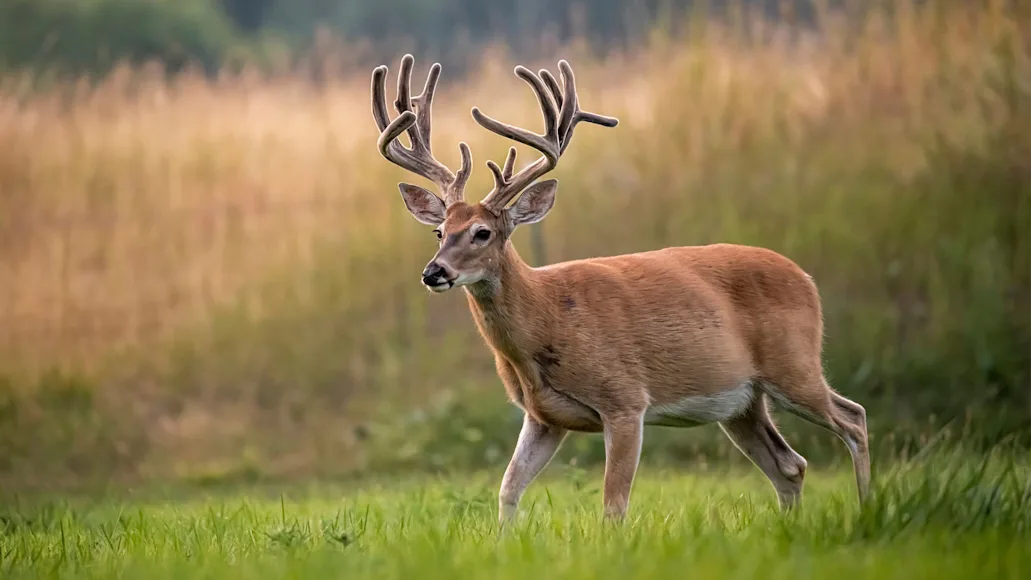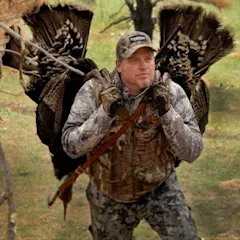When you think about what it takes to be a successful whitetail guide, it’s a wonder they even exist. It’s their job to make the big-buck dreams
of perfect strangers come true over and over again, all season long, every season. It’s such a tall order that you can’t help wonder: How do they do it? What do they know that the rest of us don’t. What are their secrets?
Well, we wonder too. So, we’re asking them. In a new series called Secrets of the Deer Guides, we are reaching out to the country’s top deer outfitters and guides to get their top tactics, secrets tips, favorite gear, best stories, pet peeves, and more. And to kick things off, we spoke to Matt Peterson, owner of MDL Outfitters
(@MDLOutfitters on Facebook and Instagram), who runs semi- and fully guided hunts for giant whitetails in the heart of southern Iowa. Below, Peterson dishes on everything from the most important summer tasks to the average hunter’s biggest mistakes and from the best deer hunting advice to the exact—and I mean exact—conditions when you’ve got to be in a deer stand.
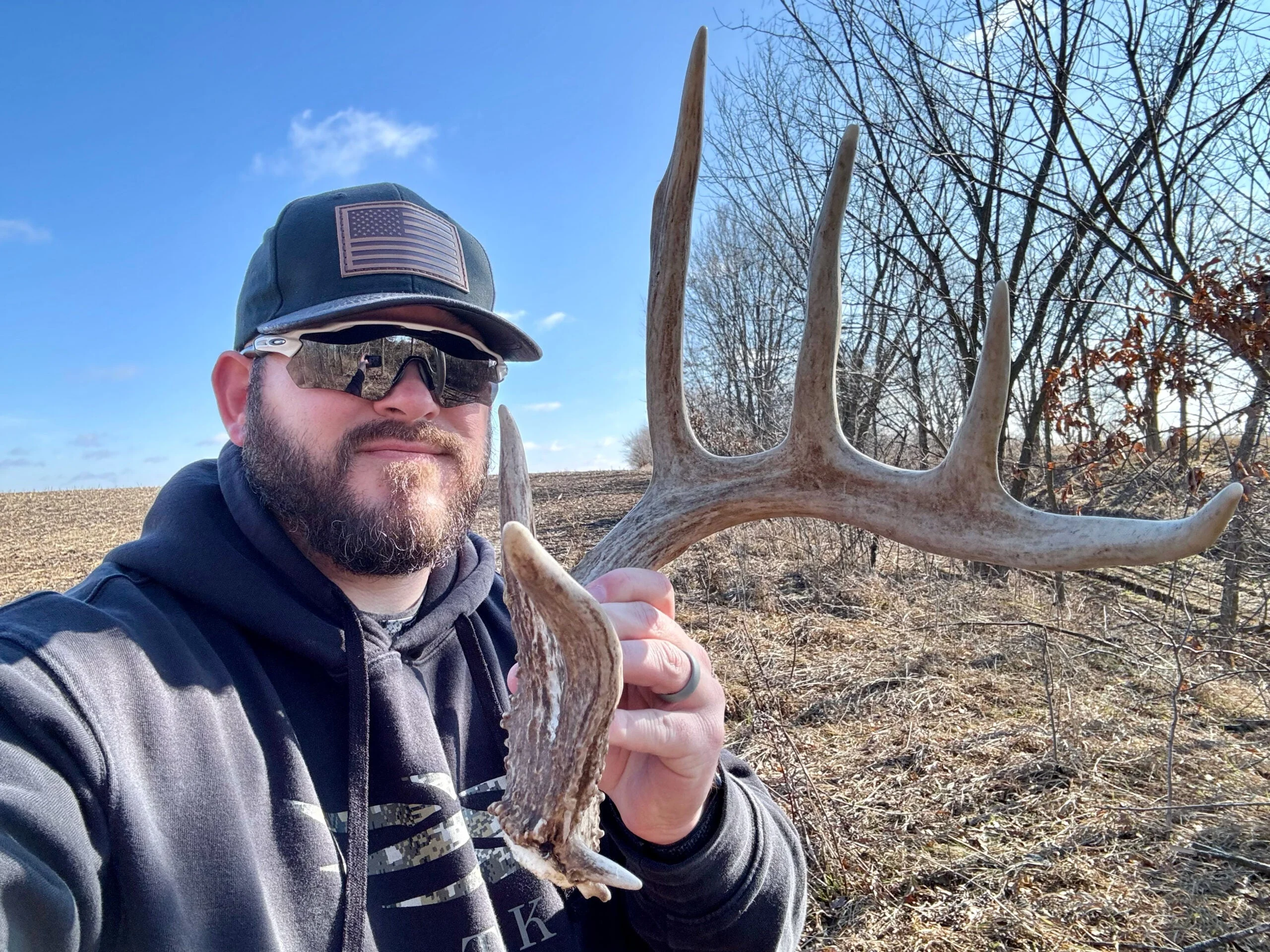
Matt Peterson, owner of Iowa’s MDL Outfitters shows off a big whitetail shed. Matt Peterson
What Most Hunters Don’t Understand About Big Bucks
Around here at least, I would say that by the time most hunters start thinking that a big buck has noticed them or their intrusion into its core area, it’s already too late. Those sensitive mature bucks have likely already scooted off to find another core area and will not return—unless the rut or survival makes it necessary. I can’t overstate how careful you have to be when you’re hunting a mature buck.
Hunters’ Biggest Mistakes—and How to fix Them
I think most hunters make the mistake of believing hype from the internet. Formerly, this was outdoor television and “celebrity hunters” who would give generalized advice, and the average Joe would take it as biblical testimony. But deer act differently from place to place, and what works in one area might not work somewhere else. Because deer all have the same basic needs, it’s easy to think they’ll generally move from bedding and food and back to bedding, for example. But sometimes their bedding is inconsistent and spontaneous. They also all have their own place in the local herd hierarchy, which affects behavior, and that is almost impossible to understand without running a lot of cameras and spending a lot of time scouting and observing their behavior without intrusion.
The best way to fix this problem is to really get to know the deer in your area and be open to the idea they may not may not be following the general patterns you hear or read about online.
**Related: Best Cellular Trail Cameras of 2024
**
The Most Important Things To Do This Summer to Be Ready for Fall
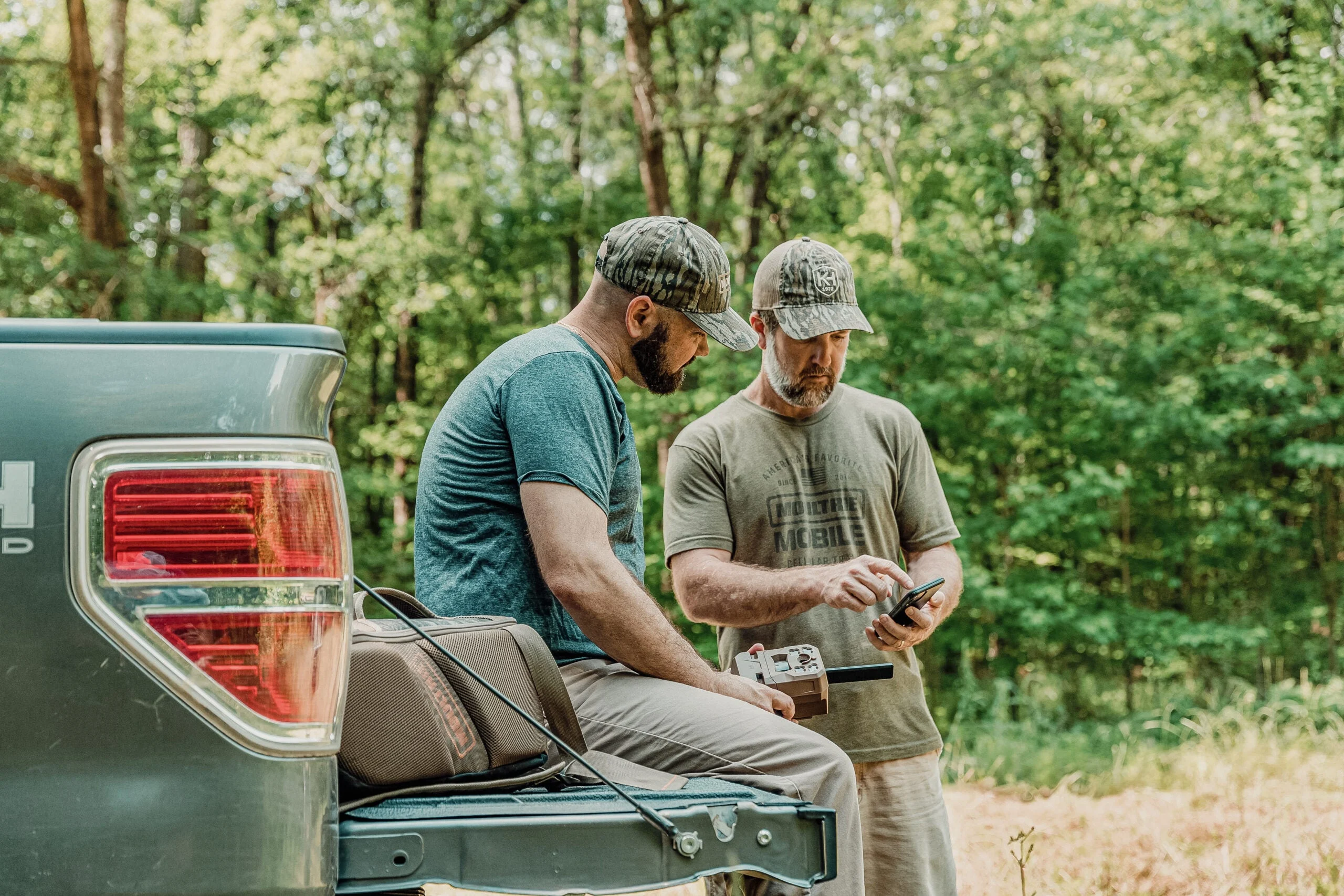
One of your biggest summer tasks is to get trail cameras out in the right places. Moultrie Mobile
Get your summer food plots going and get trail cameras
out in the right places! If it’s legal in your state to use mineral licks or bait, use them if you want. Put your cameras on feeding areas and travel corridors to find out where the bucks are (or where they frequent), and then you can start to narrow down where particular bucks lives, their home ranges, summer ranges, fall ranges, etc. But keep in mind that putting a camera in a buck’s bedroom is a huge risk. This is why specific placement of cameras matters. Put trail cameras
around an area to find where he is at. If he hits cameras on both sides of that area, there’s a decent chance he’s living in-between.
The Perfect Early-Season Hunting Conditions
Here in southern Iowa, having a mid-October cool front come in with high barometric pressure is very much warranting of sitting on a lush clover plot that’s close to bedding. Generally, if you can get a pressure of 30.05 or 30.10 and rising in the evening with a cool front with a 5-10mph wind in your favor, that is a great hunting setup. I’ve seen it produce many times.
The Best Place to Sit
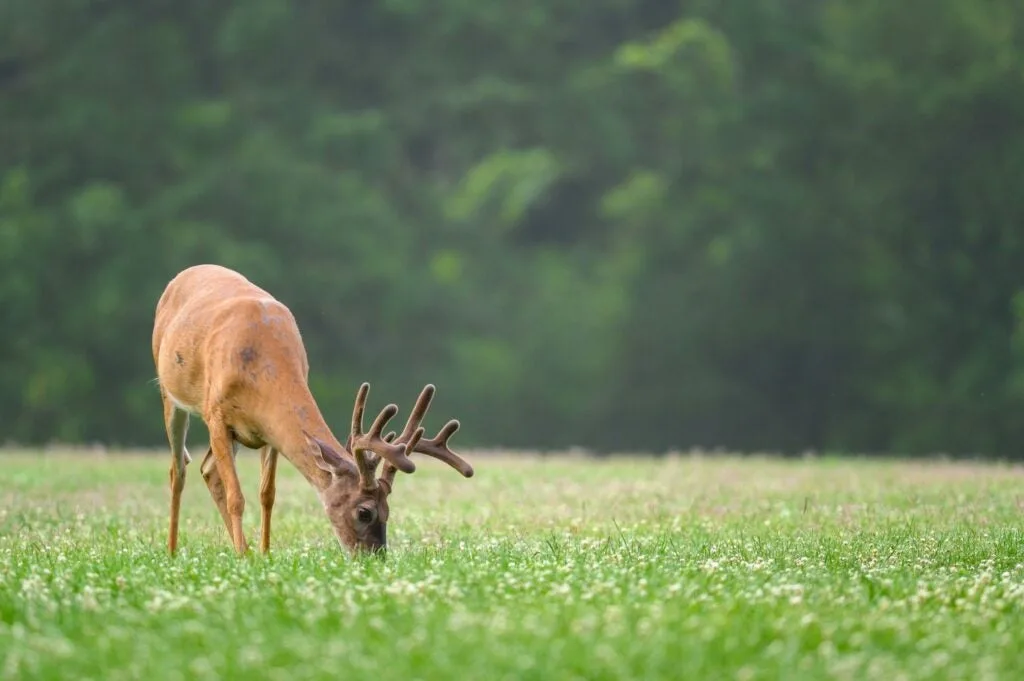
A buck in full velvet feeding in a clover plot. Tony Campbell/Alamy
For early season archery in southern Iowa, you want to focus on desirable green food sources, including clover, freshly planted winter peas, freshly growing brassica blend plots, fresh winter rye or wheat, or all near each other if possible. Palatability is huge. Corn and soybeans here will be drying out then, but if you have the last full green soybeans in your area, man, you might have a chance. The real key is the combination of green food and barometric pressure—again 30.05” or 30.10” and rising is ideal.
Related: [Best Food Plots of 2024](Related: Best Food Plots of 2024)
Game-Changer Gear Item
Our whether is always changings, so I would say that having a quality layering system with proper scent control is the biggest game-changer in my opinion. I think that there are plenty of gimmicks out there, but if I had to make my ideal setup, I am using a quality camo pattern with an underlayer of HECS
, especially during archery season where we need the deer to be closer.
I have to say, though, that no scent, call, clothing, bow, gun, or other equipment will guarantee your buck getting tagged. There is not a direct correlation between amount of dollars spent to amount of shot opportunities presented. If money is tight, save it for more hunting time.
Biggest Load of Big-Buck BS
In southern Iowa, the biggest load of BS is that you must hunt stands on specific winds all year long. Of course, some specific stand sites have no-brainer wind setups that should be honored, but unless you can guarantee the exact path of travel for a given buck and the exact wind direction, you are simply guessing and leaving it to luck.
Wind swirls hard here, especially in our timbered and brushy setups thanks to our terrain. When it swirls, you have no way of determining the correct wind. Thermals, on the other hand, are the opposite of BS, and many hunters don’t even understand what thermals are. If you live in hilly terrain, spend some time in the woods with a good wind-check in the morning and evening to learn exactly how thermals work where you hunt.
Best Client Reactions to Taking a Huge Buck
I’ve seen everything from happy tears and quivering all the way to almost no reaction at all. I just never know how my client will react when we walk up onto his deer. I am definitely more of an emotional deer hunter, so I understand the outpouring of positive emotion, especially following a challenging hunt.
Biggest Surprises
Our largest buck to-date was shot downwind by a guy not practicing any scent control who was actually wearing cologne (funny, I know) and was smoking cigarettes all day. Go figure.
Epic Fails
Our worst miss to date with a bow was a less-than-5-yards chip shot at a Booner. With a gun, it was a 100-yard broadside shot on a 175- to 185-inch mega buck in a bean plot on opening morning with a solid wooden-window-frame rest. In both instances, nerves got to my guys. It happens. We are human. All we can do is try our best.
Best Deer Hunting Advice Ever
The best advice I have ever received was to not be too aggressive, hunt smart, and put in the time above all else. TIME is the main ingredient to killing big deer consistently. I’ve seen hunters get upset when they don’t kill a big buck in five days. I understand the frustration, but I know some of the best whitetail hunters in the world hunt hard for 20 or 30 days before getting a shot opportunity on a shooter. Deer hunting includes so much luck, and luck needs time to strike. The more time that hunters hunt properly where big bucks are actually are living or roaming, the better the odds are.

